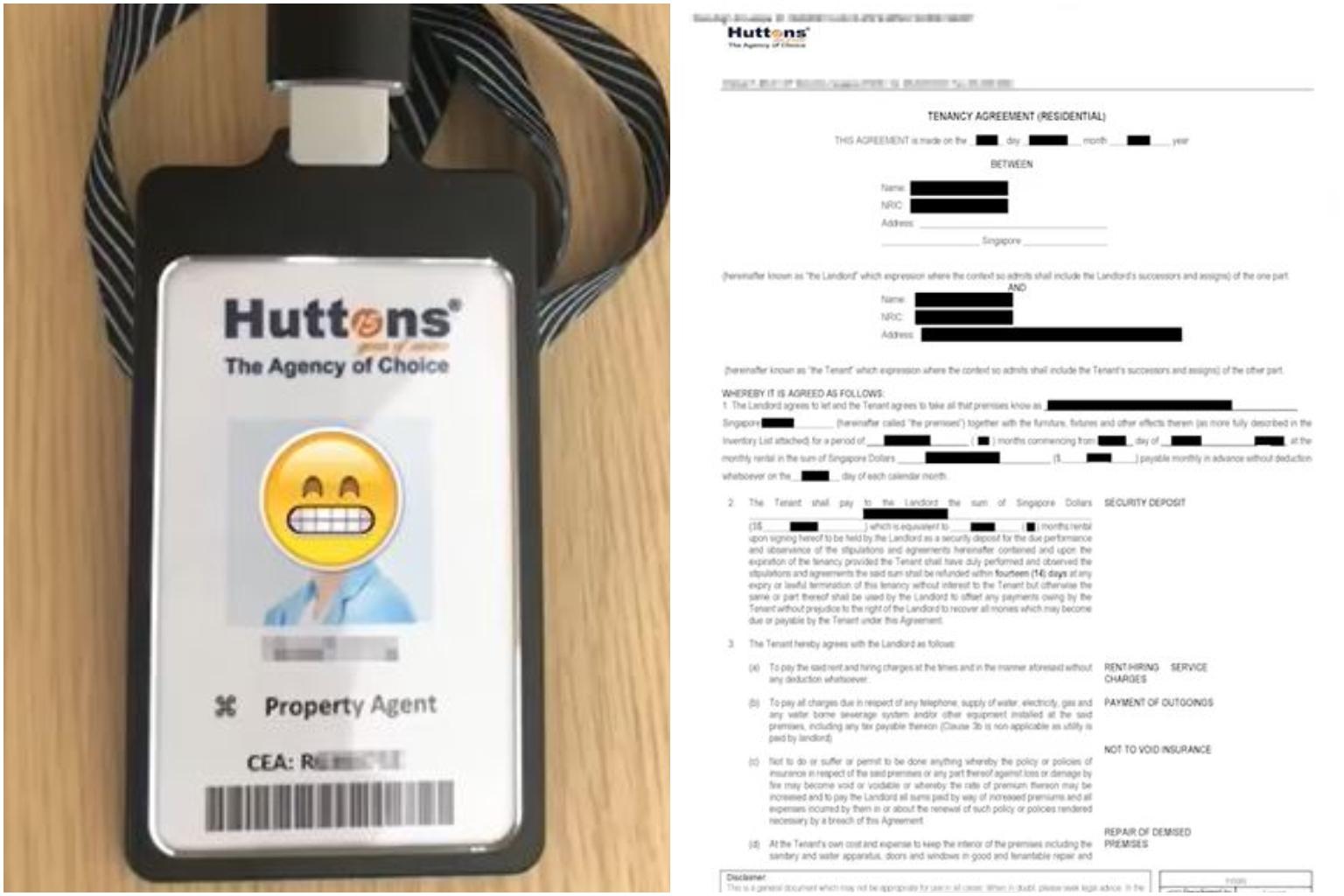Property agency Huttons warns of scams involving fake real estate agents
Sign up now: Get ST's newsletters delivered to your inbox

Huttons said scammers would use fake Council for Estate Agencies identity cards and present tenants with fake tenancy agreements to sign.
PHOTOS: SCREENGRAB FROM HUTTONS GROUP/FACEBOOK
Follow topic:
SINGAPORE - Home owners and tenants are advised to look out for scammers impersonating real estate agents, said property agency Huttons Group.
In a statement on Monday (March 14), the group said the scam was brought to its attention after individuals passing themselves off as real estate agents had allegedly cheated tenants of money.
Scammers would claim to be real estate agents by uploading fake listings on alternative platforms and using fake Council for Estate Agencies (CEA) identity cards.
The CEA is a government-run body regulating Singapore's property agencies.
A spokesman for Huttons told The Straits Times that the scams targeted people looking to rent property.
Prospective tenants were told by the scammers to pay a deposit before they had even viewed a unit.
After payment was made, the scammers became uncontactable.
In another scam, tenants would be presented with a tenancy agreement which required their signature and told to make a deposit to "secure the unit first".
Huttons said: "Once transfers are made, the possibility of recovery is very low. As such, consumers remain the first line of defence against such scams."
Mr Yeo Chin Hao, Huttons' legal counsel, said the agency wants to alert the public on how these scams operate and to take care not to fall victim to them.
"We are working closely with CEA to educate other real estate agents and members of the public," said Mr Yeo.
Members of the public are advised to take the following precautions:
1. View listings only from reputable platforms as they conduct proper screenings and allow only verified property agents to advertise.
2. Check the property agent's details in the property listing against the CEA public register online to verify that he is registered with CEA.
If the search does not lead to a property agent's profile page, it means the phone number is not registered with CEA, and the advertisement could be a scam.
3. Do not transfer money to strangers. When in doubt, get advice from a family member or another real estate agent.
If you have any information on such crimes, please file a police report.
Mr Yeo added that the agency takes a serious view of these scams as they undermine consumers' trust in the real estate industry and profession.
He said: "Spread the word and share this news with your family and friends to protect them from falling victim to such scams".

